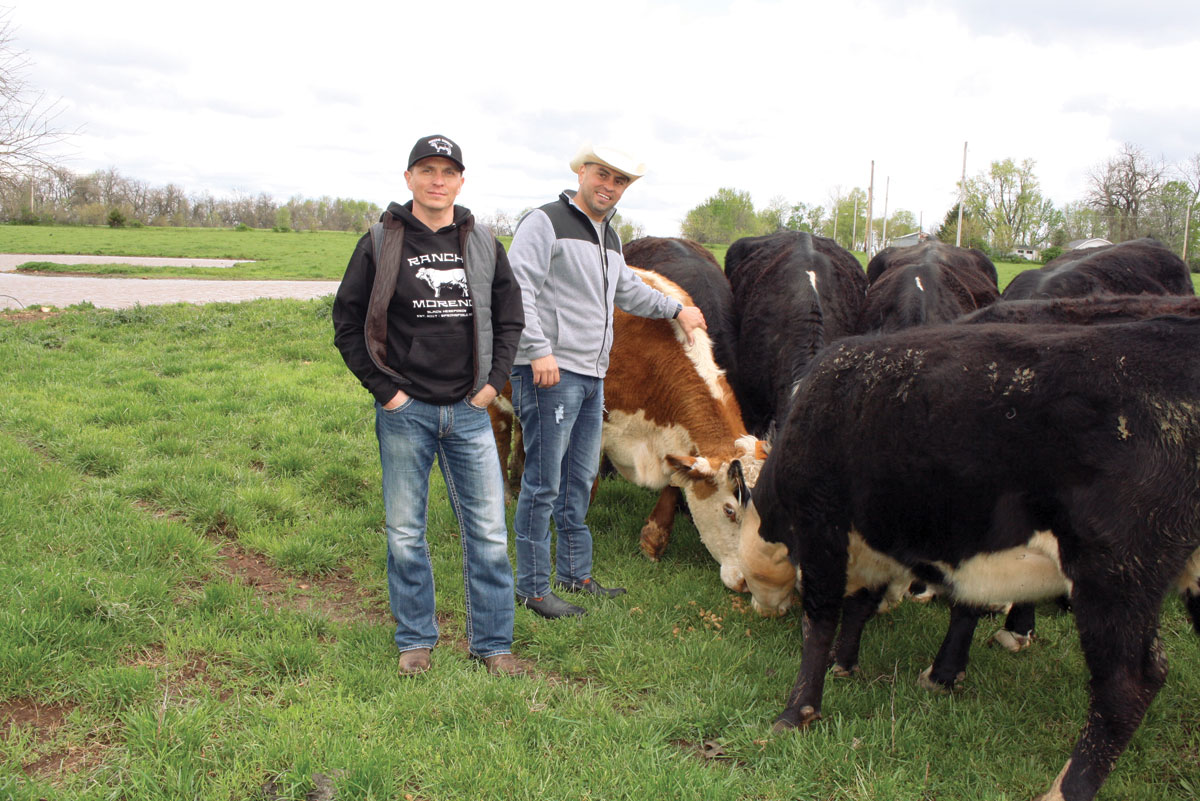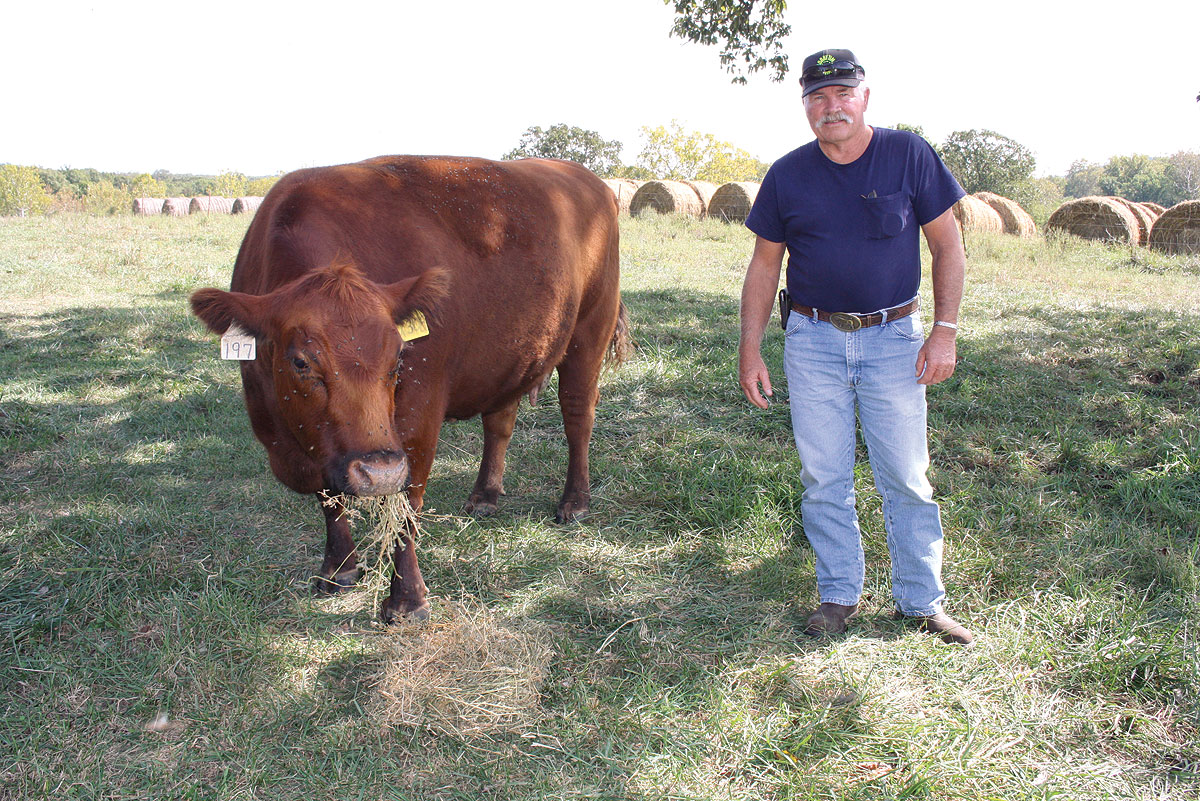
In July 1999, Leon Caselman conducted his first goat auction at Buffalo Livestock Market and sold 302 goats. At his monthly goat sale today he’ll sell 2,200 goats, with the help of his whole family. And the Caselman family literally gives new meaning to the term 'family business.' As Leon’s children, Cole and Makayla chase goats and sheep about in the auction pen along with the help of their grandfather and Bobby Cole, Leon’s father-in-law, Leon himself lets the animals in to the pen, while his wife, Tara tallies who bought what. Leon's father, Lyle, does the auctioneering and mother, Rita and sister, Chelsey, keep the front office running smoothly, while his mother-in-law, Theresa helps out, too.
“This is just something I always wanted to do.” Leon does his best to explain his fascination with the little business that has grown into the biggest goat auction in the state. His sale's influence extends to the Kansas, Illinois, and near Iowa state lines, and well into northern Arkansas.
Leon Caselman has even sold what might be considered celebrity livestock. “We sold the sheep and the donkey from the Great Passion Play in Eureka Springs,” he laughed.
“We sell all kinds of goats – meat, hair, all wool breeds, trophy rams, all classes. Prices can range from 70-90 cents a pound, up to a dollar to a dollar and a half, and everything in between. There’s a great many factors that go into that price, including the weight, the breed, and the season. There’s no real difference in the price between male and female goats unless of course, someone’s looking for just that one to take home.”
Back in the pens behind the auction area, goats and sheep of every color, size and description are there to greet those who are looking over the stock. Boer goats, grown for their meat – goat meat is eaten by more people than any other in the entire world – make up the largest part of the herds at this auction. Goat is the basic diet of many Muslims around the world as well as some other ethnic groups.
“We don’t see much of those groups in these parts,” Leon Caselman admitted with a shrug. “They tend to get their meat from the smaller packing houses in other areas, like Kentucky, Iowa, even St. Louis or Kansas City, but those packing houses get it from us.”
Meanwhile, there are hair and wool varieties and exotics, like Spanish goats out of Mexico and Texas. There are also Barbado sheep that will go to game preserves as well as a huge black billy goat that Leon Caselman characterizes as “one of the biggest billy goats you’ll ever see!”
Leon has instituted some new procedures in his operation, like livestock paint branding. “Every producer has his own number and it goes on his stock, in water soluble paint, in case one animal gets in with those belonging to others. It makes it easier to sort them out, if we have to,” he explained. Leon’s business is also the only one he knows of that does an ultrasound pregnancy screen on nanny goats at the producer’s request.
When asked about his best advice for those wanting to get started in the goat trade, Leon Caselman said, “start with a young cross bred nanny, like a Spanish cross and buy some good Boer billy goats. That’s the way I’d start.” Judging by how many goats he sees in a year, we think he may just be right.







